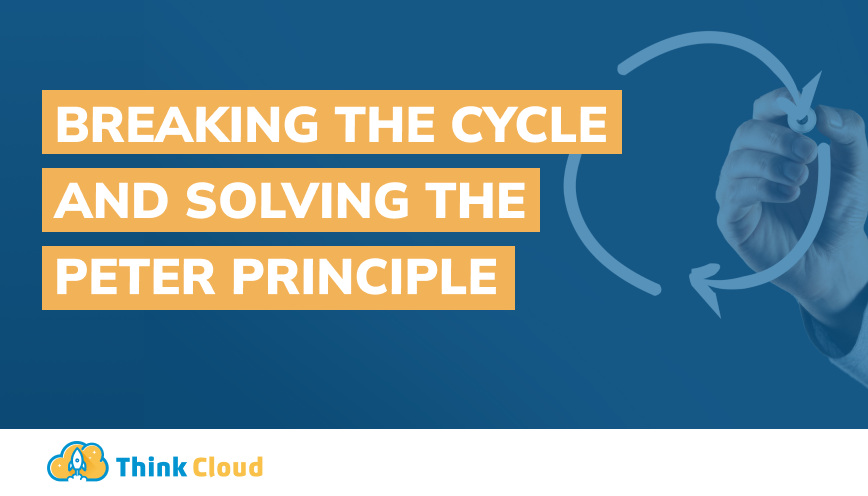Unveiling the Peter Principle: The Surprising Truth About Promotion and Incompetence
Unveiling the Peter Principle: The Surprising Truth About Promotion and Incompetence
Introduction
Promotion is often viewed as a reward for hard work and dedication. It's the next step in an employee's career path, a sign of success and achievement. But what if promotions only sometimes lead to success? What if promotion leads to incompetence?
In this blog post, we discuss the premise of the Peter Principle, a management concept that suggests people are promoted to their level of incompetence. The Peter Principle was first introduced in a book by Dr Laurence J. Peter, a Canadian educator and psychologist. His book, "The Peter Principle: Why Things Always Go Wrong," explores the idea that people are often promoted based on their performance in their current role rather than their ability to perform in a new position.
What is the Peter Principle?
As businesses grow and evolve, filling management positions, particularly within the IT and cybersecurity industry, becomes increasingly crucial. Many companies opt for internal promotions, recognising the value of promoting individuals already familiar with the organisation's operations and culture.
However, a commonly overlooked challenge in this practice is the potential manifestation of the Peter Principle. This can significantly harm organisational efficiency and effectiveness.
The Peter Principle premise is simple: capable employees get promoted until they reach a level where they can no longer perform effectively. This means that many employees end up in positions where they're incompetent, leading to inefficiency, poor performance, and, ultimately, failure.

The Allure of Internal Promotions
Promoting from within has advantages, and it rewards loyal employees, boosts morale, and ensures continuity in company culture. When individuals demonstrate competence in their current roles, assuming they would excel in higher positions is natural. Business owners should be aware of the inherent risks associated with this practice.
Companies often promote employees from within, assuming familiarity with the company culture and processes will lead to success. However, this can be risky, especially in industries requiring specialised skills and knowledge.
In IT and cybersecurity management, an employee's proficiency in a technical role may lead to promotion to a managerial position with an entirely different skill set. If lacking the relevant managerial skills or cybersecurity expertise, their effectiveness in the new role may suffer. This can result in inefficiencies and compromised security measures.

The Pitfalls of Unaddressed Incompetence
The Peter Principle can particularly harm an IT and cyber security organisation. Promoting employees based on their performance in previous roles can be problematic for industries demanding specialised skills and knowledge. It may result in them lacking the necessary expertise for the new positions.
For example, imagine a company that promotes one of its top-performing software engineers to a managerial position. While engineers may excel at coding and problem-solving, they may not have the skills to manage a team effectively. They may struggle with communication, delegation, and conflict resolution, decreasing team morale and productivity.
Inadequate decision-making, misalignment of priorities, and ineffective resource allocation have become prevalent issues. Cybersecurity, in particular, demands expertise in rapidly evolving threats, compliance frameworks, and risk mitigation strategies. Without the necessary skill set, the promoted individual may struggle to effectively protect their organisation's and client's sensitive data and critical systems.
As a result, newly-promoted managers may require assistance in providing proper guidance and support to their teams, potentially hindering effective leadership. The Peter Principle may result in more mistakes and vulnerabilities, particularly in areas like quality control, where errors can have severe consequences.

How can companies avoid falling victim to the Peter Principle?
To mitigate these risks, companies in IT and cybersecurity should carefully evaluate their employees' skills and interests. Matching them with roles that complement their abilities and personality is paramount. Companies ought to prioritise skill-based promotions, considering an employee's skills, experience, and potential for growth, over promotions based solely on seniority or performance in a current role.
Another solution is to provide training and support for employees promoted to new positions. Providing new skills training and mentoring can aid a smooth transition into a new role, enabling newly promoted employees to flourish.

Breaking the Cycle and Solving the Peter Principle
Business owners must proactively address the potential pitfalls of the Peter Principle to ensure competent leadership and robust cybersecurity management.
It is vital to consider the following strategies:
Assessing skills and aptitude: Before promoting employees, evaluate their suitability for the new role. Look beyond technical competence and identify managerial and cybersecurity skills required for success.
Providing training and development: Invest in ongoing training programs tailored to fill skill gaps. Equipping managers with the necessary cybersecurity knowledge and managerial capabilities can significantly enhance their effectiveness in the role.
Balancing internal promotions with external hires: While internal promotions are valuable, augmenting the team with external hires possessing a specific skill set can bring fresh perspectives and bridge expertise gaps.
Regular performance evaluations: Continuously assess the performance and development of promoted managers. If incompetence is observed, address it promptly through retraining, reassignment, or potential role realignment.

Ensuring Success in IT and Cyber Security Promotions
Internal promotions hold great potential for fostering growth and loyalty within organisations. However, business owners must navigate the dangers of the Peter Principle, particularly when promoting individuals to IT and cybersecurity management roles. By consciously evaluating skills, providing training, and balancing internal promotions with external hires, businesses can mitigate the risks associated with incompetence and ensure effective IT operations and cybersecurity management, safeguarding their digital assets and reputation in an increasingly complex landscape.
Ultimately, the Peter Principle is a cautionary tale for companies looking to promote from within. While promoting employees can be a valuable way to reward hard work and dedication, it's essential to consider the potential risks and ensure that promotions are based on merit and capability. By doing so, companies can ensure their employees are set up for success rather than failure.
THE NORTH’S PREMIER CYBER SECURITY & MANAGED IT PROVIDER!
At Think Cloud We Help You Work Faster, Work Smarter, Work Better - Together!
If you like to Think different and want access to more inspirational content then head over to our 'The Hack Podcast' pages.
Based in the heart of the digital tech hub in Hull, East Yorkshire, find out how Think Cloud's award-winning IT Support can empower your business to operate more efficiently.
Award-Winning Cyber Security & IT Solutions for 10 - 250+ Staff.
Tagged as: Insights
Share this post:

